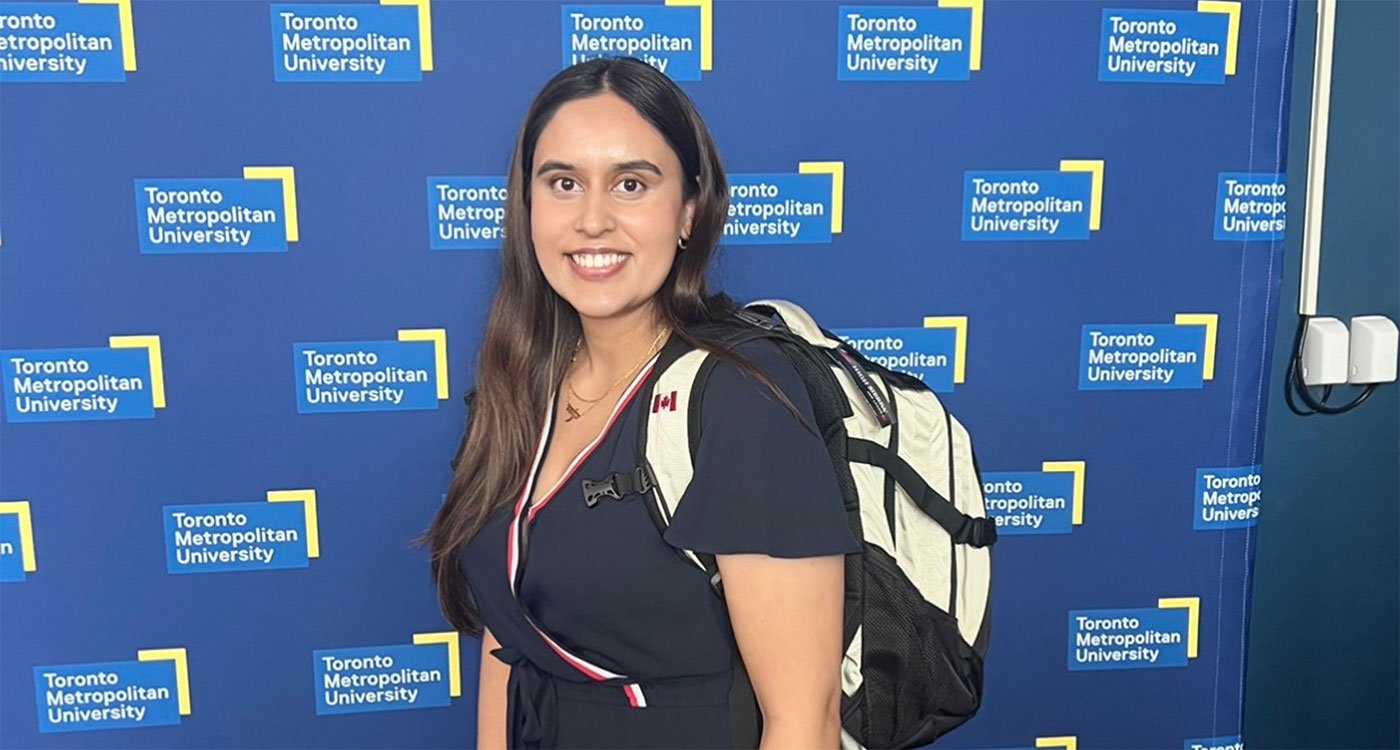
Bhavneet Kaur Bhangu is making history! The 23-year-old from Brampton is part of the inaugural medical school class at Toronto Metropolitan University’s (TMU) new School of Medicine. She is also a former Osler team member and is the first member of her family to attend medical school.
We spoke with Bhavneet about her incredible journey into medicine.
How does it feel to be part of TMU’s first School of Medicine class?
It is a tremendous honour. It represents a chance to help shape the future of medical education and give back to the very community I was raised in.
Brampton and the Region of Peel face significant shortages in health care services and being part of this class means working toward solutions that directly impact local families. It is also an opportunity to empower a diverse population by making health care information accessible and understandable, ensuring that patients can make informed decisions about their health.
Tell us about your career thus far and how it led you to medical school?
My journey is rooted in both health sciences and frontline care experiences. I completed my Bachelor of Life Sciences at McMaster University, followed by a Master of Global Health, with a specialization in Health Care Management, graduating in 2024.
Alongside my studies, I gained diverse health care experience while supporting the Trillium Health Partners (THP) hospital information system go-live implementation, working at the THP vaccine clinic during the COVID-19 pandemic and serving as a unit clerk in a Respirology Unit and more.
These combined experiences shaped my understanding of the systemic challenges facing our communities, such as increasing chronic illnesses, health inequities, and long wait times.
Do you have a specific area of interest in medicine?
I have always been drawn to radiology because of its central role in diagnosis and its ability to impact nearly every area of medicine.
I am eager to explore other specialties during my training, including emergency medicine, women’s health, anesthesiology and geriatrics. I believe that gaining exposure to a broad range of fields will help me identify where I can make the greatest impact.
As you leave your role as an applications analyst at Osler to start medical school, what are you most proud of?
Being part of a team that is building systems to improve efficiency and patient safety was incredibly rewarding. I take pride in knowing that my work played a role in supporting clinicians and enhancing the patient experience. It is exciting to think that as a student, and when I become a practicing physician, I will be able to experience that impact of that work.
What are your future goals as a physician?
My vision as a future physician is to inspire health education and empower individuals to practice wellness in their everyday lives. I want to ensure that patients not only receive care within the health care system but also have the tools, knowledge, and resources to maintain their health at home. By focusing on prevention, education and accessibility, my goal is to help communities thrive and reduce the burden on acute care services.

